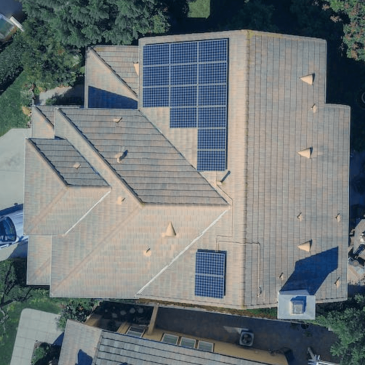Preparing Your Finances Before Purchasing Residential Solar
As with any major home improvement, adding solar energy to your home comes with a sizable price tag attached. Even though the cost of going solar has dropped substantially since the technology was first introduced, it’s still a project that can cost upwards of $24,000 or more, depending on the size and scale of your system.
For this reason, solar’s cost is one of the most common topics of discussion between solar installers and their clients. To help ensure that your solar energy system can meet all your needs and expectations, including your financial concerns, it is important to ask your contractor the following three financial questions.
How Much Will I Save With Solar?
One of the biggest attractions with solar is how much money it can help you save on your monthly energy bills. In fact, this is the number one reason why so many homeowners choose to go solar in the first place. But how much can you realistically expect to save every month?
The truth is that the amount of monthly savings you can expect from your solar panels depends on three key factors:
- The size of your solar system
- The amount of sunlight it receives
- The efficiency of your solar panels
The average household in the United States consumes 10,715 kilowatt hours (kWh) per year. If we take that times the national average electricity rate of $0.14 per kWh, then the average American family’s annual electric bill is $1,500. According to a recent study by the NC Clean Energy Technology Center at NC State University, solar panels can save you anywhere between $44 and $187 per month on electricity.
How Much Does Solar Cost?
The cost of a solar energy system is measured in dollars per watt with the average residential system ranging anywhere from $3 to $5 per watt. According to the Center for Sustainable Energy, the cost for a solar system plus installation averages between $15,000 and $25,000. This amount is prior to any tax credits, local green energy incentives, or any other savings program being applied.
With the federal solar tax credit for 2023 at 30%, this means that solar systems installed this year will be eligible for a tax credit for nearly a third of the cost of the system (unless the solar panels are leased). This can reduce the net cost of the above-mentioned systems by $4,500 and $7,500, respectively.
Is My Power Bill High Enough to Justify Going Solar?
Before you make the financial investment and switch to solar, you should first determine if your electric bill is high enough to warrant going solar. In almost every case, the answer to that question is going to be “yes,” but it is still important to verify.
If your household uses the average amount of electricity (which equates to a monthly energy bill of $125 averaged out over the year), then solar can provide you with substantial savings for your home. This will allow your solar system to reach its payback period within seven to ten years. The solar payback period is when the savings you get from your system equals the amount that it cost to have installed.
It’s a Rare Household That Can’t Benefit From Solar
Solar panels can provide just about any home with excellent cost savings benefits. But that’s not all solar has to offer homeowners. Solar also increases a home’s market value by an average of 4.1%, but in certain states like New Jersey, a home’s value can rise by as much as 10% simply by having solar installed. In truth, unless your household’s energy bills are lower than $50 per month, then making the switch to solar will be well worth it.

